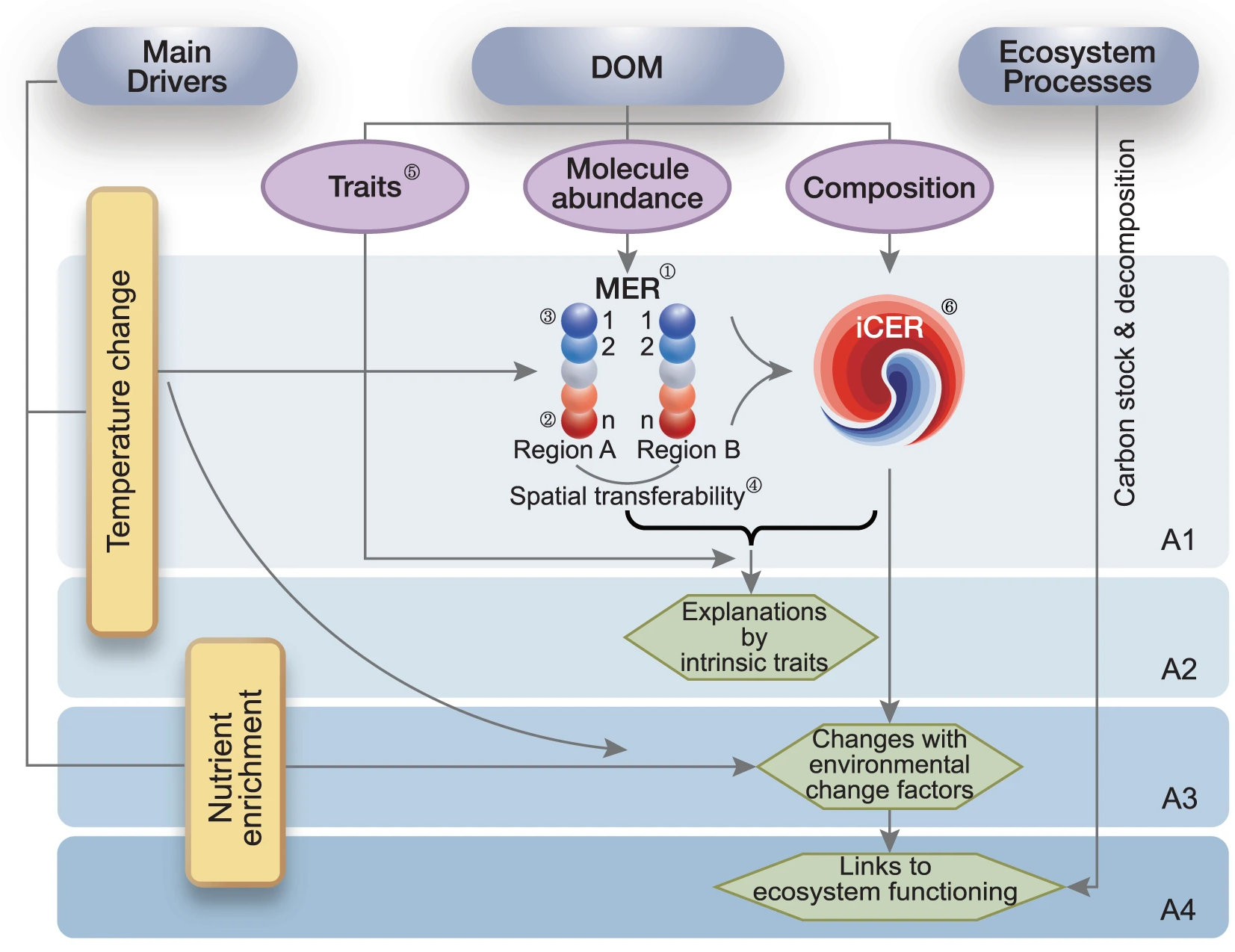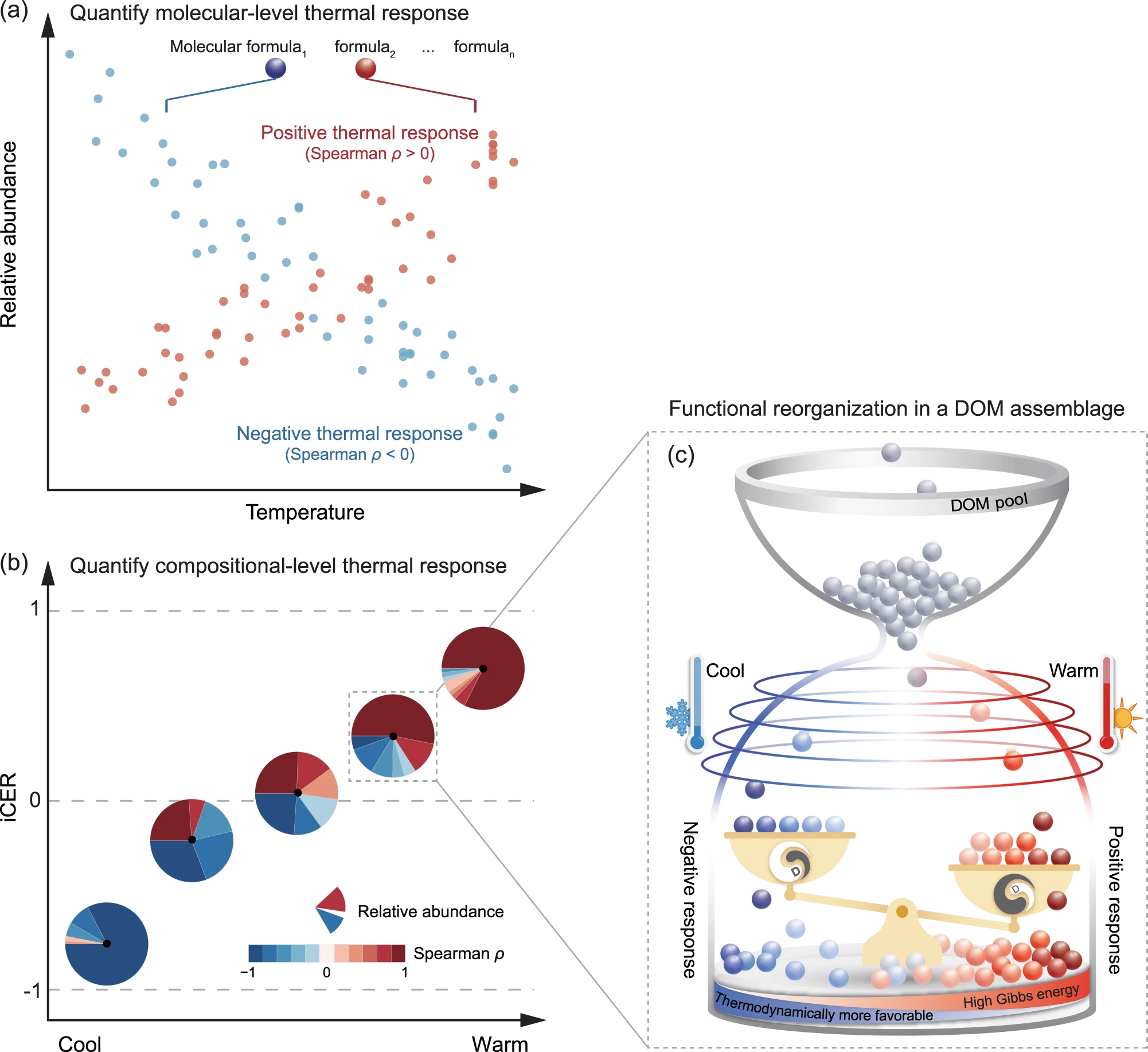Molecular-level impacts of global change on natural organic matter
Global warming is closely linked to natural organic matter on the Earth via its decomposition to greenhouse gas. Natural organic matter represents one of the largest and most active carbon reservoirs in aquatic ecosystems and fuels biogeochemical cycles. However, the diversity of organic matter molecules makes it challenging to predict how they will respond to climate change, which has implication for the global carbon cycle.
Hu et al develop an indicator iCER to estimate the responses of dissolved organic matter assemblages to temperature change. We have applied it to field experiments on mountainsides of three distinct climate zones in Eurasian continent. We discover that there is notably consistent temperature response of organic molecules across climate zones. We further find that the thermal response of dissolved organic matter increases towards warmer conditions such as at low elevations, and this warming effect is strengthened by nutrient enrichment. This suggests that the temperature responses of organic matter can be affected by other global change drivers, especially nutrient enrichment in complex ways.
We give mechanistic insights into the thermal responses of dissolved organic carbon under climate change and nutrient enrichment. The research indicates that the thermal responses of organic molecules is associated with their chemical properties yet strikingly consistent across climate zones. Organic carbon molecules with lower thermodynamic favorability for microbial decomposition exhibit a higher positive response to temperature. Each organic carbon molecule exhibits similar thermal response across the three highly divergent mountain environments. The result provides compelling evidence that the responses of molecules to temperature are transferable and generalizable across regional and continental scales.
As a whole, the thermal response of organic matter increases towards warmer conditions such as at low elevations, and this pattern is consistently observed across various climatic zones. The functional composition is reorganized towards molecules with lower thermodynamic favorability for microbial decomposition, implying that carbon should persist longer in the organic matter pools at these sites. The warming effect is strengthened by eutrophication, with increased sensitivity of up to 22% for each additional 1 mg L-1 of nitrogen loading.
Further investigations reveal that higher thermal response of organic carbon is correlated with increased emissions of greenhouse gases. This is the very first application of molecular-level methods to assess the responses of organic matter to global change that are pivotal to future carbon stock.
We are happy to have above results published lead by Ang, which is now accessible in Nature Communications.
The research was selected and introduced by Alfie Mayhew at chembites on Feb. 1, 2024: https://chembites.org/2024/02/01/dissolved-organic-compounds-under-a-changing-climate/
Reference
A. Hu, K.-S. JANG, A. J. Tanentzap, W. Zhao, J. T. Lennon, J. Liu, M. Li, J. C. Stegen, M. Choi, Y. Lu, X. Feng, J. Wang. 2024. Thermal responses of dissolved organic matter under global change. Nature Communications 15:576. [PDF download] [Full text]
https://www.nature.com/articles/s41467-024-44813-2

